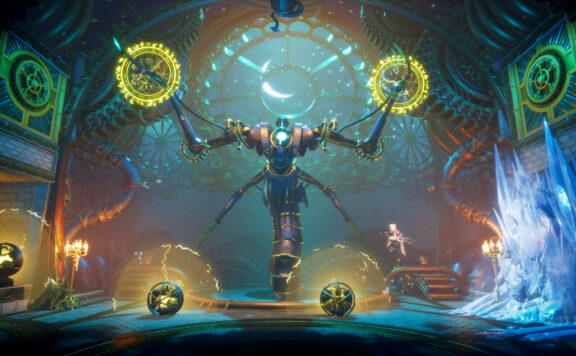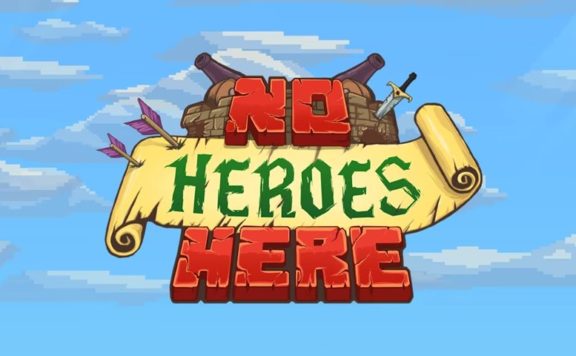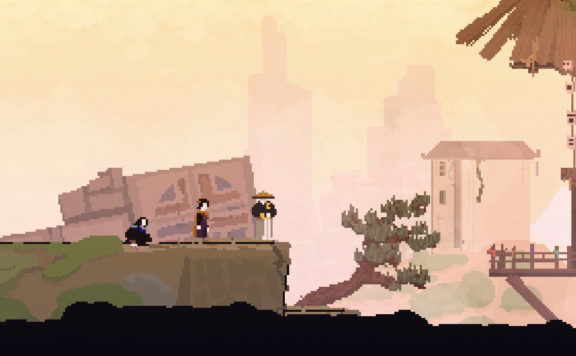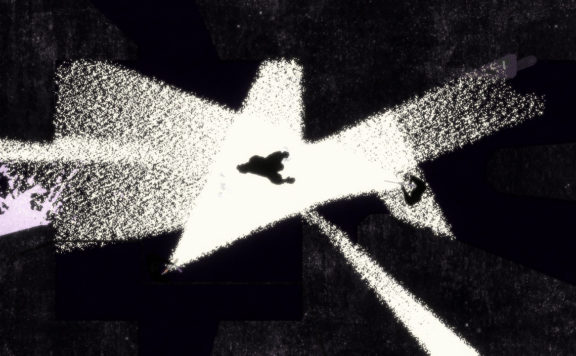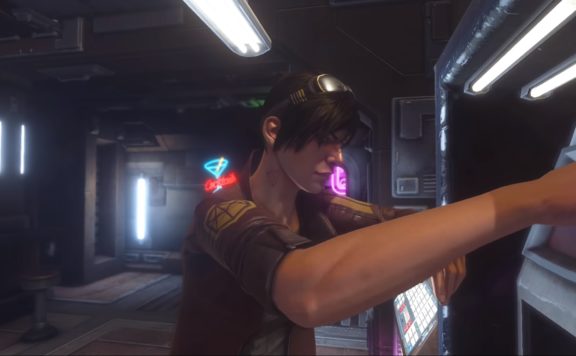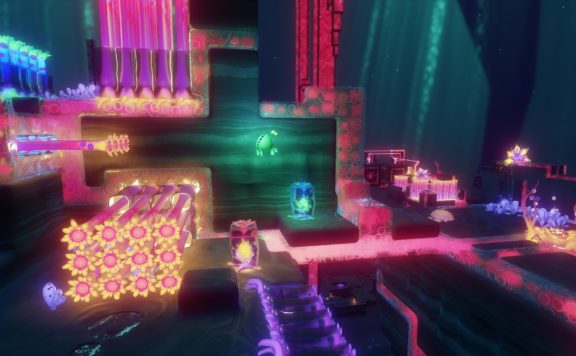I never thought I would publicly admit this, but here it goes: I love my dog. He is a goofy three-year-old, mini Schnoodle with personality for days. There are days that I wish that I possessed the ability to understand what goes on in his mind…
You really can’t appreciate the gravity of my opening statement unless you knew that it took eight years of marriage for my wife to finally get a dog and, now that he is ours (or we are his – not sure which is the more accurate statement), I can’t imagine our life without him. I never had strong feelings for pets growing up, so I never really had a category for that kind of affection.
Why did you need to know all of that? Because today, we are taking a look at game that, by similar standards, should not exist, yet here we are talking about. That game is Dig Dog on Nintendo Switch.

Before we dive into the review, some context:
If my previous statement sets up a negative basis for our review of Dig Dog, it is actually quite the contrary. It is a statement that acknowledges an achievement through willed persistence and hard work. This game exists because game developer Rusty Moyher set out to discover if it could. Moyher suffers from a major repetitive stress injury which drastically limits the amount of time he can spend at a keyboard and mouse.
I had the opportunity to talk with Rusty about his story and the development of Dig Dog during the process of writing this review. When discussing this limitation with him, Moyher said, “It’s extremely frustrating because I really love making games.” Undaunted, he looked for ways to rest his hands, but still put in the work. This journey led him to discover a segment of people who were voice coding – using their microphones and libraries of spoken shorthand associated with specific functions. This was like learning a whole new language of invented words and phrases. And that was just the coding!
Dig Dog’s artwork was also designed by Moyher, but instead of voice commands, he used a tracking device called SmartNav. This device pairs an infrared camera with a sensor-equipped hat to control mouse movement.
After a year and a half of learning new tools and this new language, Dig Dog was Rusty Moyher’s proof-of-concept that he could still do the thing that he loved without subjecting himself to repeated injury.
So, how does all of this translate into a game?

It’s simple, but within that simplicity lies its charm.
Presented in a low-bit aesthetic, Dig Dog is an arcade-style digger where you play as an unnamed dog (which, when asked, Moyher affectionately calls Doggo) digging for his beloved bone. Along the way, you will be hampered by enemies and traps seeking maximum bamboozling, but you will find coins to help unlock abilities for our dear, nameless doggo. These upgrades include coin magnets, high jumps, health upgrades and more – all to help you progress further than before.
While digging is the main mechanic, your pup also has a dash attack and a fierce bark. The dash is nice to help clear enemies or blocks in front of you while the bark lets you know that this doggo is trying his hardest.
Dig Dog also follows in the traditions of Rogue-like/lite games. It can be incredibly challenging but focuses more on the incremental wins rather than vast progression. Your run may be short lived, but with each bone collected, the potential for a new color theme called a Palette is unlocked or warp points to a new collection of levels.
While a change in Palette may seem like a paltry reward, it can actually make a big difference in highlighting where your enemies are. That contrast can make all of the difference between avoiding a surprise attack or getting the upper hand first.
If the thought of a Rogue-like/lite doesn’t sound like your jam, there is a more zen dig mode which allows you to do exactly what the name suggests: dig. This mode can help you explore the controls and mechanics of Dig Dog without the risk of losing progress. While there are still enemies and spikes at the bottom of the screen like any other level, you can just keep digging endlessly to the sweet, sweet chiptune sound track by 8bitmatt.
The one major feature missing from Dig Dog which would help with accessibility is the ability to change or assign the button layout. I found myself wishing for the ability to use the L and R bumpers during some of my extended play sessions. Perhaps this is a feature that could be patched in later.

Dig Dog is $3.99 on the Nintendo Store.
Note: Our copy was reviewed on Nintendo Switch with a code provided by PR.
COMPARE TO: Dig Dug, Spelunky

